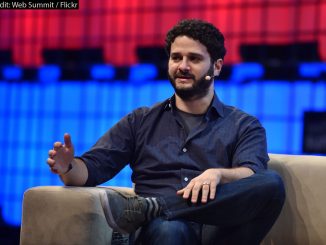
Picking up some news as an afterthought remains a familiar practice even in the digital age, whether it’s grabbing a New York Times with your Starbucks or a USA Today while waiting to board an airplane.
For a company with deep pockets, CNN may become the next great news impulse buy.
Rupert Murdoch has made a bold, $75 billion bid for Time Warner. While the purchase is far from a certainty, one of the many possible side effects of such a deal would be CNN going up for sale, in order to avoid antitrust problems due to conflicts with Fox News. CNN’s sale, if it happened, could fetch an estimated $6 billion to $8 billion, an unnamed person familiar with the matter told Bloomberg.
Speculation abounds regarding which company would want to pick up CNN, should the cable network become available. Popular guesses include CBS, Disney and Yahoo. Google, while less likely, has also been mentioned as a contender; Porter Bibb, managing partner at Mediatech Capital Partners, pointed out that the network could be a perfect complement to Google-owned YouTube.
This speculation got me thinking: What about Facebook (FB)?
Facebook announced earlier this year that it would acquire WhatsApp for $19 billion. That price was around three times the estimated value of CNN, for a company that had, at most, $300 million in revenues at the time the deal was announced. I have no opinion about the WhatsApp deal, mostly because I have almost no idea what WhatsApp does. (At my age, this ignorance is permitted, though not encouraged. Thanks to Google I understand, vaguely, that WhatsApp lets users send messages and share information, which I thought I was already doing.) I do know, however, that CNN has real viewers and makes real, though not vast, profits.
I spend a big portion of each day gathering information. I troll a variety of news sites to find out about things that are important to me. I also check Facebook to find out about people who are important to me. Because those people often share and comment upon news items, and because I sometimes react to the things they share, Facebook undoubtedly already has some idea which topics are important to me. If Facebook wanted to save me the trouble of scanning six news sites a day, I’d be happy to tell them more.
It has long been a given that Facebook wants to know as much as possible about what its users do all over the Internet. And of course Facebook wants to maximize the amount of time its users spend on Facebook itself. So why wouldn’t Facebook want to get into the business of providing me with news that I, in turn, might share with my friends? It would mean my friends and I would all spend more time on the social network, which is exactly what Facebook and its advertisers ultimately want.
Facebook also has a history of acquisitions, not all of which were intuitive from the outside. In a smaller deal than its WhatsApp purchase, the company acquired virtual reality start-up Oculus VR earlier this year. Bystanders have guessed that the acquisition was everything from a vanity purchase by CEO Mark Zuckerberg to a long-term attempt to develop a Google Glass competitor. Either way, Facebook has demonstrated that it is willing to reach outside its existing model. Comparatively, a news organization would not be much of a stretch.
Zuckerberg is a bright guy who has some cash at his disposal. He doesn’t need me to tell him how to spend it. If he can snag CNN for, say, $7 billion, it would be roughly the equivalent of me picking up People magazine at the checkout counter. (In my case, just a copy of the latest issue, not the actual publication itself.) If CNN catches Zuckerberg’s eye, there is no doubt he’ll know what to do with it.
So it wouldn’t shock me if Facebook got into the news business. It would seem to be one of the more logical ways for the social network to go about filling its users’ news feeds.
Disclaimer: This page contains affiliate links. If you choose to make a purchase after clicking a link, we may receive a commission at no additional cost to you. Thank you for your support!




Leave a Reply